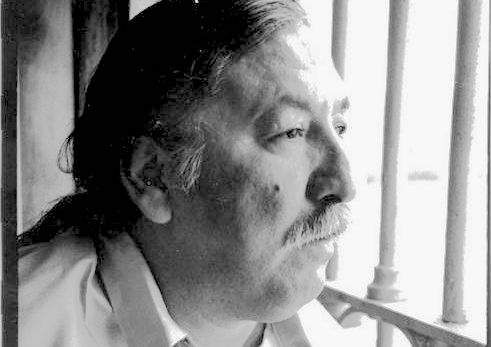
- Details
- By Levi Rickert
A decision to determine the fate of American Indian Movement (AIM) member Leonard Peltier (Turtle Mountain Ojibwe) by the U.S. Parole Commission will come within 21 days. The first parole hearing in 15 years for Peltier, 79, who is incarcerated for the killing of two FBI agents,Jack R. Coler and Ronald A. Williams, on the Pine Ridge Indian Reservation, was held on Monday, June 10, 2024.
The hearing was held before a U.S. Parole Commission examiner inside the United States Penitentiary, Coleman, a high-security prison, in Coleman. Fla.
RELATED: Parole Commission: It’s Long Past the Time to FREE Leonard Peltier
The back and forth between those representing the government and those seeking Peltier’s release at the hearing felt like a trial, according to an unnamed source who spoke with Native News Online on Monday evening.
Nick Tilsen, president and CEO of NDN Collective, an Indigenous advocacy group, was a witness who wants Peltier freed.
“This whole entire hearing is a battle for his life,” Tilsen said. “It’s time for him to come home.”
FBI Director Christopher Wray, sent a letter, dated June 7, 2024, in opposition to Peltier’s release.
“Given the overwhelming and unassailable evidence of his guilt, the brutality of his crimes, and his persistent refusal to accept responsibility, I urge you in the strongest terms possible to deny Peltier’s application for parole. To afford him release after what he did and how he has conducted himself since would most certainly “depreciate the seriousness of his offense [and] promote disrespect for the law,” Wray wrote.
Amnesty International Executive Director Paul O’Brien wrote a letter to the parole commission pleading for Pelter’s freedom on humanitarian grounds.
“Given the ongoing, unresolved concerns about the fairness of Leonard Peltier’s incarceration, that he has spent nearly 50 years in prison, his age, and ongoing and chronic health issues, it is our view that granting parole on humanitarian grounds in this case is not only timely but a necessary measure in the interests of both justice and mercy,” O’Brien wrote.
More Stories Like This
Native News Weekly (August 25, 2024): D.C. BriefsNavajo Nation Gaming Enterprise Marks Problem Gambling Awareness Month With $3.4M in Support
Cheyenne River Youth Project to Celebrate Women’s Strength at Barbie-Themed Passion for Fashion on March 14
Celebrating Native American Women
Native Bidaské: The Illusion of Freedom and the Myth of America 250, Leonard Peltier Speaks Out
Help us defend tribal sovereignty.
At Native News Online, our mission is rooted in telling the stories that strengthen sovereignty and uplift Indigenous voices — not just at year’s end, but every single day.
Because of your generosity last year, we were able to keep our reporters on the ground in tribal communities, at national gatherings and in the halls of Congress — covering the issues that matter most to Indian Country: sovereignty, culture, education, health and economic opportunity.
That support sustained us through a tough year in 2025. Now, as we look to the year ahead, we need your help right now to ensure warrior journalism remains strong — reporting that defends tribal sovereignty, amplifies Native truth, and holds power accountable.
 The stakes couldn't be higher. Your support keeps Native voices heard, Native stories told and Native sovereignty defended.
The stakes couldn't be higher. Your support keeps Native voices heard, Native stories told and Native sovereignty defended.
Stand with Warrior Journalism today.
Levi Rickert (Potawatomi), Editor & Publisher


